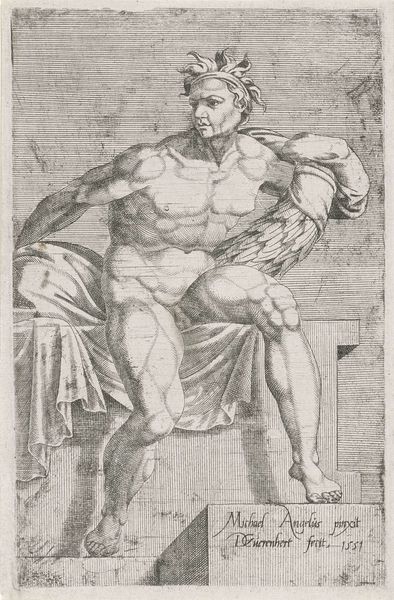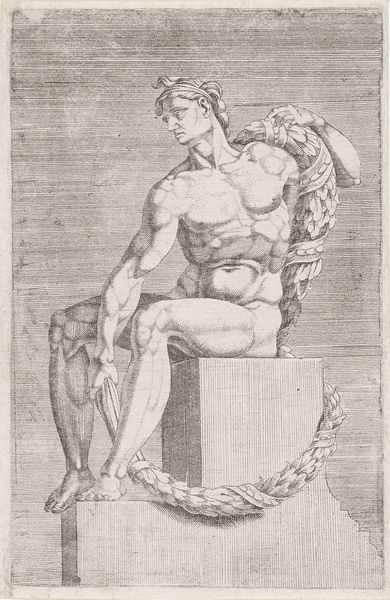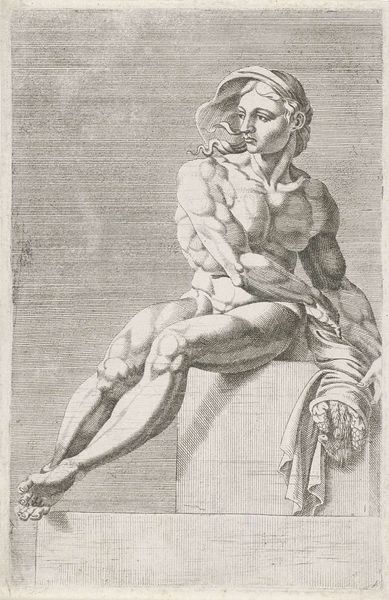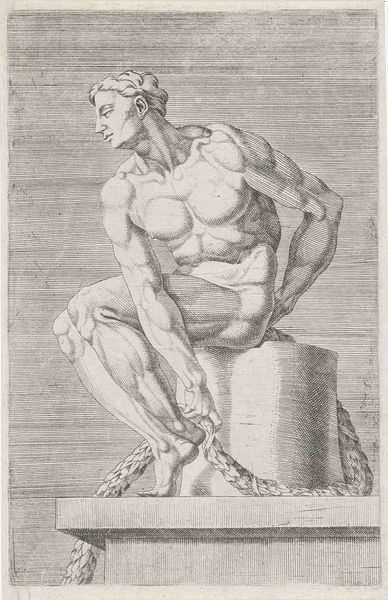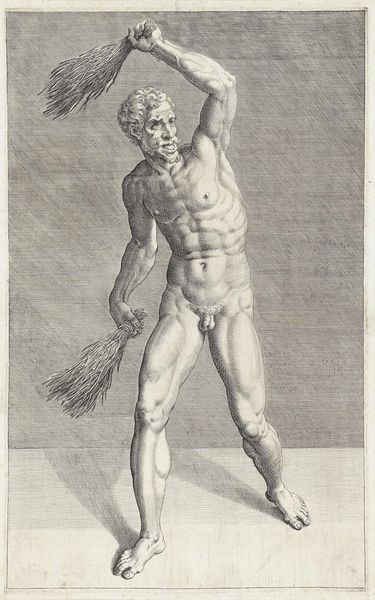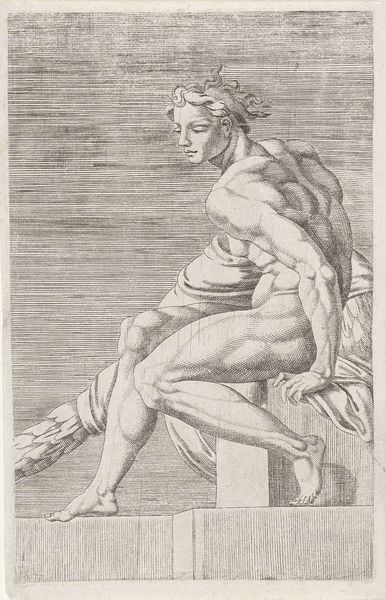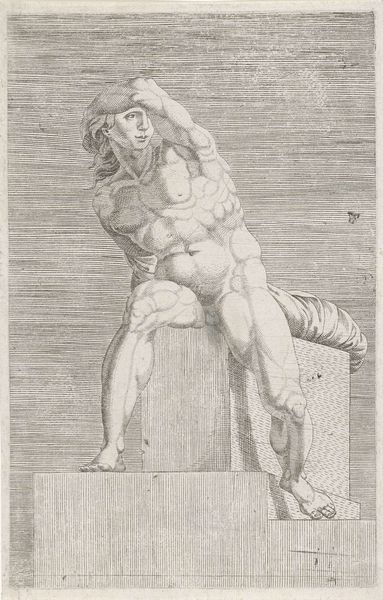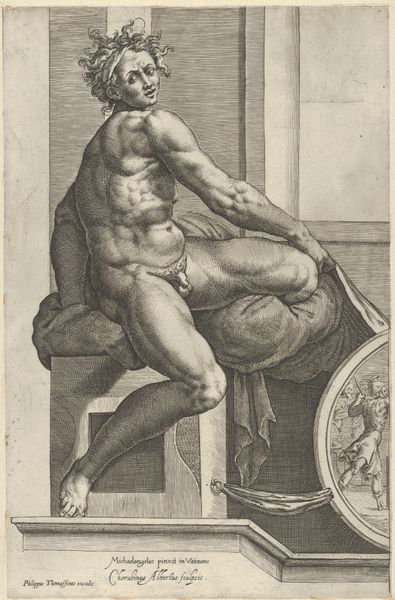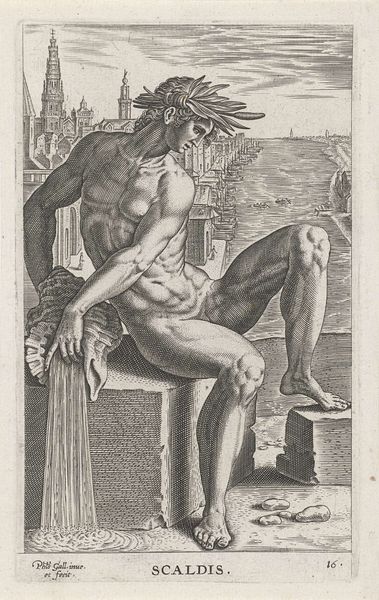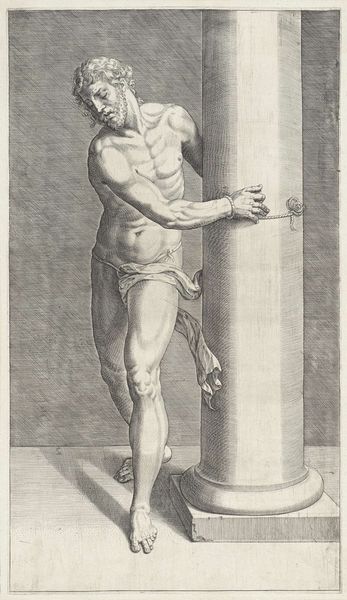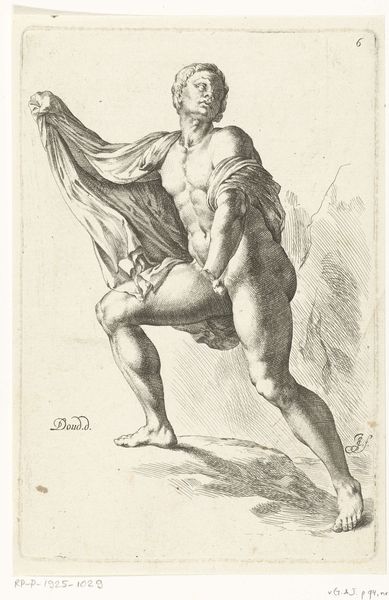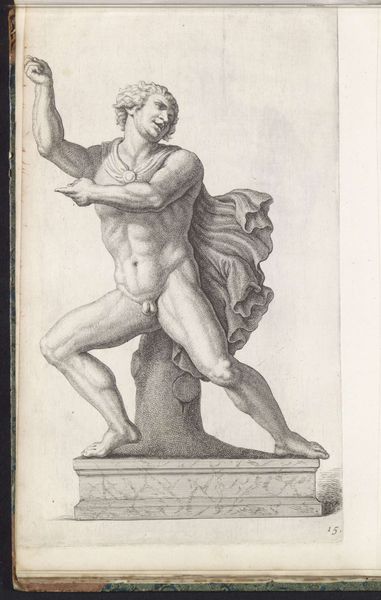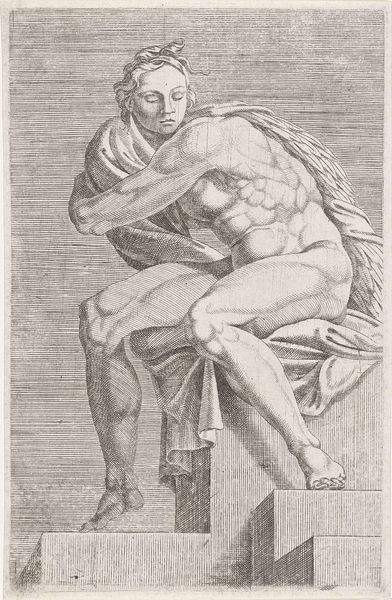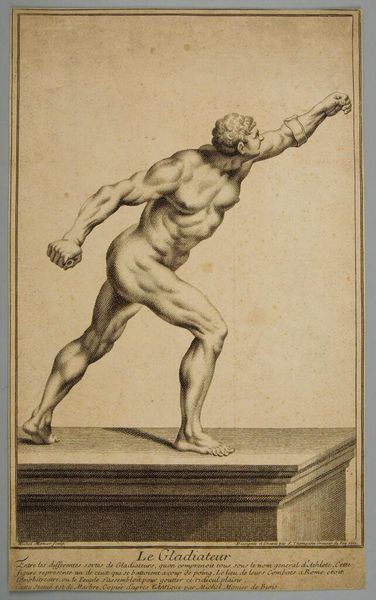
engraving
#
classical-realism
#
figuration
#
form
#
11_renaissance
#
pencil drawing
#
line
#
history-painting
#
academic-art
#
nude
#
engraving
Dimensions: height 216 mm, width 139 mm
Copyright: Rijks Museum: Open Domain
Dirck Volckertsz Coornhert created this print, "Zittend naakt uit de Sixtijnse kapel," likely sometime in the mid-to-late 16th century. Coornhert, a Dutch artist, grapples here with the imposing legacy of the Italian Renaissance, particularly Michelangelo's Sistine Chapel. The male nude, derived from classical antiquity, was central to Renaissance artistic production. However, it was not without its tensions. Consider the period's complex relationship between religious piety and the celebration of the human form. Coornhert's nude figure, while displaying idealized anatomy, also evokes a sense of vulnerability. He's seated, contemplative, almost melancholic. Is this simply an exercise in form, or does it suggest something more? Might it reflect the anxieties of a Northern European artist grappling with the weight of classical and Italian artistic traditions? The figure's ambiguous expression invites us to consider the psychological dimensions of artistic creation and reception in a time of significant cultural and religious change.
Comments
No comments
Be the first to comment and join the conversation on the ultimate creative platform.
